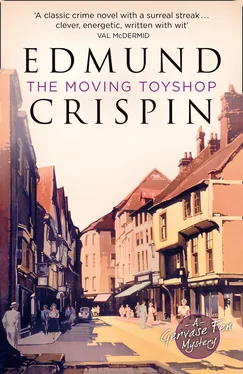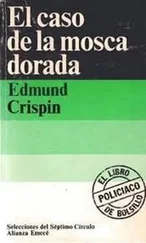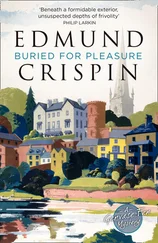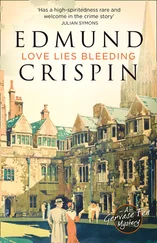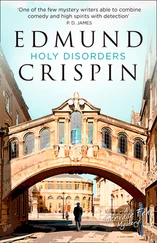Faced with these unpalatable facts, something of Cadogan’s enthusiasm for his holiday began to wane; but he quickly shook off this feeling as being shamefully indicative of a middle-aged desire for comfort and convenience. The other passengers, grumbling bitterly, had departed in search of hotel accommodation, but he decided to leave his bag and make for the Oxford road in the hope of getting a lift from a belated car or lorry. As he walked he admired the effect of the weak, colourless moonlight on the ugly brick houses, with their diminutive asphalt paths, their iron railings, and their lace curtains, and on the staring windows of Methodist chapels. He felt, too, something of that oddly dispassionate lifting of the heart which he knew meant poetry, but he was aware that such emotions are shy beasts, and for the moment he turned a blind eye to them for fear of frightening them away.
Cars and lorries, it seemed, were reluctant to stop – this was 1938, and British motorists were having one of their periodical scares about car thieves – but eventually a big eight-wheeler pulled up at his hail, and he climbed in. The driver was a large, taciturn man, his eyes red and strained with much night driving.
‘The Ancient Mariner did this better than me,’ said Cadogan cheerfully as they started off. ‘He at least managed to stop one of three.’
‘I read abaht ’im at school,’ the driver replied after a considerable pause for thought. ‘“ A thahsand, thahsand slimy things lived on and so did I .” And they call that poetry.’ He spat deprecatingly out of the window.
Somewhat taken aback, Cadogan made no reply. They sat in silence while the lorry bucketed through the outskirts of Didcot and into open country. After about ten minutes:
‘ Books ,’ the driver resumed. ‘I’m a great reader. I am. Not poetry. Love stories and murder books. I joined one o’ them’ – he heaved a long sigh; with vast effort his mind laboured and brought forth – ‘circulatin’ libraries.’ He brooded darkly. ‘But I’m sick of it now. I’ve read all that’s any good in it.’
‘Getting too big for your Boots?’
‘I ’ad a good un the other day, though. Lady Somebody’s Lover . That was the old firm, if you like.’ He slapped his thigh and snorted lecherously.
Being mildly astonished by these evidences of culture, Cadogan again failed to answer. They drove on, the headlights picking out mathematical segments of the flying hedges on either side. Once a rabbit, dazed by the glare, sat up and stared at them for so long that it only just escaped the wheels.
At the end of a further interval – perhaps a quarter of an hour – Cadogan said with something of an effort:
‘I had a pretty bloody journey from London. Very slow train. Stopped at every telegraph pole – like a dog.’
At this the driver, after a pause of earnest concentration, began to laugh. He laughed so immoderately and long that Cadogan feared he was going to lose control of the vehicle. Before this could happen, however, they fortunately arrived at Headington roundabout, and pulled up with a violent screeching of brakes.
‘I’ll ’ave to drop yer ’ere,’ said the driver, still shaking with silent mirth. ‘I don’t go into the tahn. You walk down that there ’ill, and you’ll be in Oxford quickern’ no time.’
‘Thanks,’ said Cadogan. He clambered down into the road. ‘Thanks very much. And good night to you.’
‘Good night,’ said the driver. ‘Like a dawg, eh? That’s rich, that is.’ He put the engine into gear with a noise like an elephant treading down a tree and drove off, laughing loudly.
The roundabout, with its scattered lights, seemed very lonely after the sound of the lorry had passed out of earshot. It occurred to Cadogan for the first time that he did not know where he was going to sleep that night. The hotels would be tenanted only by night porters and the colleges would be shut. Then suddenly he smiled. Such things didn’t matter in Oxford. He had only to climb over the wall of his college (he’d done it often enough in the old days, God knows) and sleep on a couch in somebody’s sitting-room. Nobody would care; the owner of the sitting-room would be neither surprised nor annoyed. Oxford is the one place in Europe where a man may do anything, however eccentric, and arouse no interest or emotion at all. In what other city, Cadogan asked himself, remembering his undergraduate days, could one address to a policeman a discourse on epistemology in the witching hours of the night, and be received with neither indignation nor suspicion?
He set out to walk, past the shops, past the cinema by the traffic lights, and so down the long, winding hill. Through a rift in the trees he caught his first real glimpse of Oxford – in that ineffectual moonlight an underwater city, its towers and spires standing ghostly, like the memorials of lost Atlantis, fathoms deep. A tiny pinpoint of yellow light glowed for a few seconds, flickered, and went out. On the quiet air he heard faintly a single bell beating one o’clock, the precursor of others which joined in brief phantom chime, like the bells of the sunken cathedral in Breton myth, rocked momentarily by the green deep-water currents, and then silent.
Obscurely pleased, he walked on at a quicker pace, singing softly to himself – his mind drained of thought: only looking about him and liking what he saw. On the outskirts of Oxford he became a little lost, and wasted some minutes in finding the right road again. Which was it – the Iffley road or the Cowley road? He had never been able to get them clear in his mind, even as an undergraduate. No matter; at the end of it was Magdalen Bridge, and the High, and beyond that again the College of St Christopher, patron saint of travellers. He felt a little disappointed that his journey should end thus uneventfully.
There had been neither pedestrian nor vehicle to be seen during his walk from Headington; and in this respectable, rather tawdry quarter of Oxford the inhabitants were long since in bed. Shop-lined on either side, the road stretched long and deserted before him. A small wind had risen, creeping in little gusts round the corners of buildings, and it caught and gently stirred a white awning which some negligent tradesman had left down in front of his shop. Cadogan fixed his eye idly on it as he walked, since it was the only one showing, and when he came up to it looked for the name of the owner; but it was hidden under the shadow of the awning. Then he glanced at the shop itself. There were blinds drawn against the windows, so he could not see what kind of shop it was. Moved by an idle curiosity, he strolled to the door and tried it. It opened.
And now he stopped and considered. It was not usual, certainly, for tradesmen to leave their shops unlocked at night. On the other hand, it was very late, and if burglars had got in it was unfortunate, but certainly none of his business. Probably the owner lived over the shop. In that case, he might be pleased at being woken and informed, or he might not. Cadogan had a horror of meddling in other people’s business; but at the same time he was curious.
Stepping back into the street, he regarded the blank, unpleasing windows above the awning for a moment; and then, coming suddenly to a decision, returned to the door. After all, he had embarked on his holiday with a desire for excitement, and the door of the shop, if not exactly the portal of romance, presented a problem sufficiently unusual to be worth investigating. He pushed it wide, and felt a windy vacuum in the pit of his stomach when it creaked noisily. It was possible that he might catch a burglar, but more likely, on the whole, that he would be arrested as one himself. He closed the door again, as softly as he could, and then stood quite still, listening.
Читать дальше
